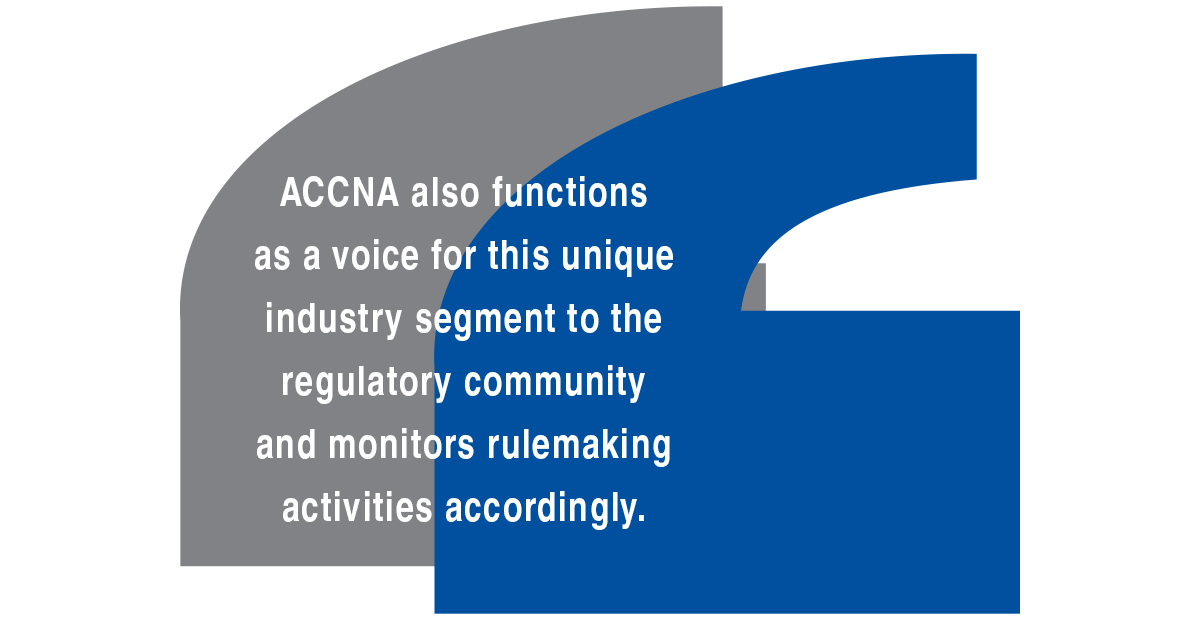
Articulating Crane Council of North America (ACCNA), an NTEA operating division established in 1992, serves common interests of articulating crane manufacturers. As many of these specialized truck-mounted crane manufacturers reside overseas, membership includes authorized national importers.
There are many applications for articulating cranes, which are also known as knuckleboom cranes since the booms operate in a similar manner to a finger. Usage varies with specialized end attachments, like as forks for drywall delivery. From a regulatory view, articulating cranes fall under different Occupational Safety and Health Administration (OSHA) categories, such as forestry for log-loaders or maritime standards for such equipment when used on docks. OSHA’s construction standards mostly cover truck-mounted variations due to the broad definition of what is considered a construction activity.
ACCNA tracks changes to OSHA standards involving cranes, as well as applicable state requirements. OSHA’s standards for cranes and derricks used in construction are contained in Code of Federal Regulations Title 29 Part 1926, Subpart CC. Since it regulates workplace safety, changes to OSHA standards become the responsibility of equipment owners/operators. ACCNA members forecast the effects of such regulatory changes to ensure customers can meet new requirements based on equipment use and function.
A key element of construction standards for cranes involves certification requirements for operators, which took effect in 2018. Working ahead of these requirements, ACCNA partnered with National Commission for the Certification of Crane Operators (NCCCO) to develop a series of written and practical exams for articulating crane operators that launched in 2009. This was a significant undertaking as nothing was previously created to formally officiate an operator for this type of equipment. The task force, which included ACCNA member company representatives, created three categories of articulating crane operator certification to cover construction industry equipment groupings subject to the new regulations. The success of this cooperative program continues as articulating cranes and operator requirements evolve.
ACCNA also functions as a voice for this unique industry segment to the regulatory community and monitors rulemaking activities accordingly. As with many other vocational vehicles, ACCNA members continue to navigate the effects and challenges with advanced driver assistance systems (ADAS), such as automatic emergency braking and electronic stability control. Comments to NHTSA rulemaking efforts on the creation of new FMVSS requirements for these systems reflected concerns for ACCNA member products.
How to join
Membership is open to NTEA member companies in good standing engaged in the manufacture of and/or an authorized national importer of articulating cranes. For more information or to join, email Steve Spata, NTEA technical assistance director at steves@ntea.com. Learn more about ACCNA at ntea.com/accna.
ACCNA officers
Chair Andrew Wood, Hyva Corporation
Vice Chair Jim Walliser, HIAB USA Inc.
Treasurer Scott Whitaker, Manitex Inc.
ACCNA members
Fascan International Inc. (Baltimore, Maryland)
Fischer Crane Co. (Bolingbrook, Illinois)
HIAB USA Inc. (Perrysburg, Ohio)
HYVA Corp. (Wood Dale, Illinois)
Iowa Mold Tooling Co. Inc. (Garner, Iowa)
Manitex Inc. (Georgetown, Texas)
National Crane Corp. (Shady Grove, Pennsylvania)
PALFINGER North America (Niagara Falls, Ontario)